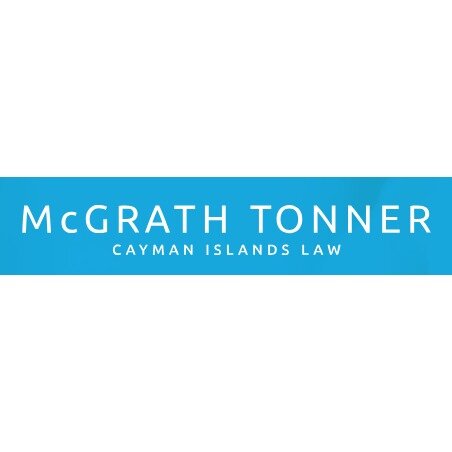Best Creditor Lawyers in Cayman Islands
Share your needs with us, get contacted by law firms.
Free. Takes 2 min.
Or refine your search by selecting a city:
List of the best lawyers in Cayman Islands
About Creditor Law in Cayman Islands
The Cayman Islands is a global financial hub, known for its robust regulatory framework and creditor-friendly laws. Creditor law in the Cayman Islands primarily governs the rights and obligations of creditors and debtors. It provides mechanisms to resolve disputes, enforce debts, and deal with insolvency cases. The legal environment is designed to balance the interests of both creditors and debtors, ensuring fair treatment and the smooth functioning of financial transactions.
Why You May Need a Lawyer
There are several situations where individuals and businesses might seek legal advice in creditor matters in the Cayman Islands:
- Debt Recovery: Recovering outstanding debts can be complex and may require legal action to enforce payment.
- Insolvency Proceedings: If a debtor is insolvent, legal expertise is needed to navigate through insolvency procedures.
- Contract Disputes: Legal counsel can help resolve disputes arising from breach of contract or interpretation issues.
- Credit Facilities: Drafting, reviewing, and negotiating credit agreements necessitate legal oversight to protect your interests.
- Asset Management: Ensuring the protection and recovery of collateral in the case of non-payment requires professional legal knowledge.
Local Laws Overview
Several key laws and regulations relate to creditor matters in the Cayman Islands:
- Companies Law: Governs the incorporation, management, and insolvency of companies, crucial for creditors dealing with corporate debtors.
- Bankruptcy Law: Outlines the process and consequences of bankruptcy, allowing creditors to understand their position in financial distress cases.
- Contract Law: Establishes the binding nature of contracts and the available remedies in case of breach, essential for enforcing debt contracts.
- Security Interests Law: Regulates the creation and enforcement of security interests over assets, providing a legal framework for secured creditors.
Frequently Asked Questions
What is the process for recovering a debt in the Cayman Islands?
Debt recovery generally involves sending a demand letter, followed by legal proceedings if the debt is not settled. The process might involve securing a court judgment and then enforcing it.
Can a creditor enforce a foreign judgment in the Cayman Islands?
Yes, foreign judgments can be enforced in the Cayman Islands under certain conditions, typically through the Grand Court, provided they meet the requirements of local laws.
How does insolvency affect creditors?
Insolvency can significantly affect creditors as they need to participate in the insolvency proceedings to assert their rights and possibly recover debts.
What rights do secured creditors have?
Secured creditors typically have the right to seize and sell the collateral tied to the debt if the debtor defaults, subject to legal regulations.
What is a statutory demand?
A statutory demand is a formal request by a creditor for the payment of a debt, serving as a precursor to bankruptcy or winding-up proceedings if ignored.
Are interest rates on loans regulated?
Interest rates are generally agreed upon contractually between parties, but they must not be unconscionable or constitute a penalty, as per the regulatory guidelines.
How are disputes between creditors and debtors resolved?
Disputes can be resolved through negotiation, mediation, arbitration, or litigation depending on the nature of the disagreement and the agreed-upon dispute resolution mechanism.
Is there a limitation period for debt collection?
Yes, claims for debt collection are subject to a limitation period, which typically requires action to be taken within six years from the date the debt becomes due.
Can a creditor object to a debtor's discharge in bankruptcy?
Yes, creditors may object to the discharge if they believe the debtor has acted fraudulently or hasn't complied with required bankruptcy procedures.
What is the role of the court in creditor proceedings?
The court oversees creditor proceedings, ensuring legal compliance, adjudicating disputes, and enforcing judgments to facilitate fair resolution of debts.
Additional Resources
Here are some resources and organizations that can be helpful:
- Cayman Islands Monetary Authority (CIMA): Regulates and oversees the financial sector in the Cayman Islands.
- The Grand Court of the Cayman Islands: Handles significant civil and commercial cases, including creditor matters.
- Insolvency Practitioners Association of the Cayman Islands (IPACI): Provides a list of licensed practitioners for insolvency matters.
- Cayman Islands Chamber of Commerce: Offers guidance and resources for businesses operating in the Cayman Islands.
Next Steps
If you require legal assistance with creditor-related matters in the Cayman Islands, consider taking the following steps:
- Consult with a lawyer specializing in creditor law to understand your legal rights and options.
- Gather all relevant documentation, such as contracts, communication records, and any proof of debt or payment.
- Explore alternative dispute resolution methods, like mediation or arbitration, as a potentially quicker and cost-effective option.
- File a claim or begin legal proceedings with the help of your legal counsel if negotiations fail.
- Ensure compliance with all legal procedures and prepare for court appearances if necessary.
Lawzana helps you find the best lawyers and law firms in Cayman Islands through a curated and pre-screened list of qualified legal professionals. Our platform offers rankings and detailed profiles of attorneys and law firms, allowing you to compare based on practice areas, including Creditor, experience, and client feedback.
Each profile includes a description of the firm's areas of practice, client reviews, team members and partners, year of establishment, spoken languages, office locations, contact information, social media presence, and any published articles or resources. Most firms on our platform speak English and are experienced in both local and international legal matters.
Get a quote from top-rated law firms in Cayman Islands — quickly, securely, and without unnecessary hassle.
Disclaimer:
The information provided on this page is for general informational purposes only and does not constitute legal advice. While we strive to ensure the accuracy and relevance of the content, legal information may change over time, and interpretations of the law can vary. You should always consult with a qualified legal professional for advice specific to your situation.
We disclaim all liability for actions taken or not taken based on the content of this page. If you believe any information is incorrect or outdated, please contact us, and we will review and update it where appropriate.
Browse creditor law firms by city in Cayman Islands
Refine your search by selecting a city.

















